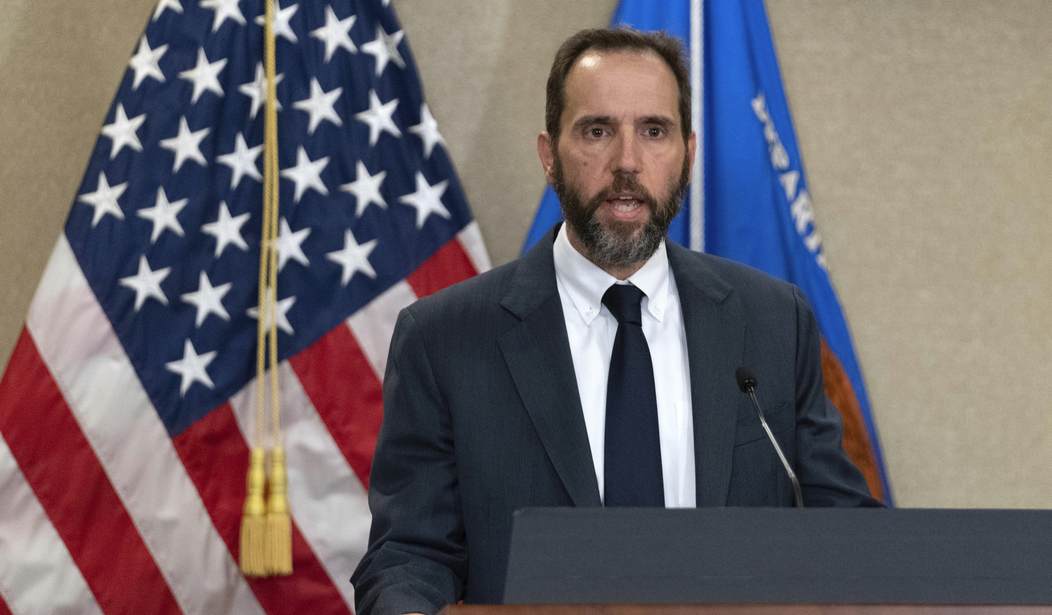Monday, the Supreme Court handed down a mixed bag of a ruling on presidential immunity. In my view, they took what could've been a straightforward and elegant decision — the president is immune from prosecution for acts committed in office unless he has been impeached for those acts — and turned it into a dog's breakfast of angels-on-the-head-of-a-pin litigation about what constitutes official and unofficial acts. Susie Moore has an excellent write-up on that case at BREAKING: Supreme Court Rules on Presidential Immunity.
What has passed with remarkably little notice is Justice Clarence Thomas's concurrence. Justice Thomas says the Court is putting the cart before the horse. The first question that needs to be answered is not whether acts were official or unofficial. The critical first question is whether this prosecution is legal at all. Thomas's comments begin on the 44th page of the linked document.
I write separately to highlight another way in which this prosecution may violate our constitutional structure. In this case, the Attorney General purported to appoint a private citizen as Special Counsel to prosecute a former President on behalf of the United States. But, I am not sure that any office for the Special Counsel has been “established by Law,” as the Constitution requires. Art. II, §2, cl. 2. By requiring that Congress create federal offices “by Law,” the Constitution imposes an important check against the President—he cannot create offices at his pleasure. If there is no law establishing the office that the Special Counsel occupies, then he cannot proceed with this prosecution. A private citizen cannot criminally prosecute anyone, let alone a former President.
No former President has faced criminal prosecution for his acts while in office in the more than 200 years since the founding of our country. And, that is so despite numerous past Presidents taking actions that many would argue constitute crimes. If this unprecedented prosecution is to proceed, it must be conducted by someone duly authorized to do so by the American people. The lower courts should thus answer these essential questions concerning the Special Counsel’s appointment before proceeding.
...
Even if the Special Counsel has a valid office, questions remain as to whether the Attorney General filled that office in compliance with the Appointments Clause. For example, it must be determined whether the Special Counsel is a principal or inferior officer. If the former, his appointment is invalid because the Special Counsel was not nominated by the President and confirmed by the Senate, as principal officers must be. Art. II, §2, cl. 2. Even if he is an inferior officer, the Attorney General could appoint him without Presidential nomination and senatorial confirmation only if “Congress . . . by law vest[ed] the Appointment” in the Attorney General as a “Hea[d] of Department.” Ibid. So, the Special Counsel’s appointment is invalid unless a statute created the Special Counsel’s office and gave the Attorney General the power to fill it “by Law.”
Whether the Special Counsel’s office was “established by Law” is not a trifling technicality. If Congress has not reached a consensus that a particular office should exist, the Executive lacks the power to unilaterally create and then fill that office. Given that the Special Counsel purports to wield the Executive Branch’s power to prosecute, the consequences are weighty. Our Constitution’s separation of powers, including its separation of the powers to create and filled offices, is “the absolutely central guarantee of a just Government” and the liberty that it secures for us all. Morrison, 487 U. S., at 697 (Scalia, J., dissenting). There is no prosecution that can justify imperiling it.
This is, in my very unlawerly view, nearly unprecedented. Thomas is using this case to strike at the very core of the indictment against Trump brought by Attorney General Merrick Garland's minion, Jack Smith.
This is much the same as the argument that Trump's legal team made before Federal District Judge Aileen Cannon.
Former President Donald J. Trump’s defense team tried on Friday to persuade the judge overseeing the national security documents case to dismiss the indictment, pushing a long-shot argument that the special counsel, Jack Smith, was not properly appointed.
There is an ongoing campaign by Jack Smith and the media to gaslight you in thinking the argument is specious, but these are the same people who told you that Joe Biden's dementia and physical decrepitude were the product of "cheapfakes" by rightwing media and your lying eyes.
Don't believe them. Smith's case is particularly weak because the Senate never confirmed him to any position inside the federal government, and so even if the Justice Department's internal special counsel rule is legal, there is a huge question mark floating over Smith's ability to serve in that position.
Thomas has to be aware of the blowback he is going to get over using his concurrence to push an argument that Trump's legal team is making in court. But he has done a great service in pushing this issue to the forefront. The idea that the Attorney General can use an internal Justice Department regulation to choose some bearded rando off the street to carry out a politically charged prosecution of a former president is crap that belongs in Pakistan or Sudan, not in the United States.














Join the conversation as a VIP Member